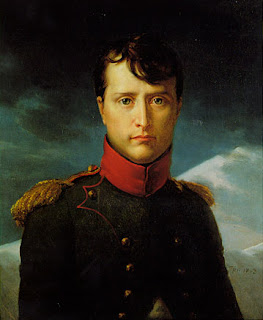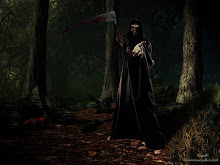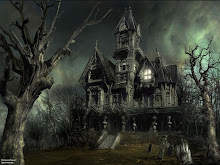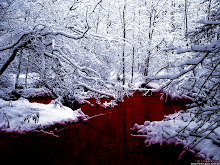
One of the most brilliant individuals in history, Napoleon Bonaparte was a masterful soldier, an unequalled grand tactician and a superb administrator. He was also utterly ruthless, a dictator and, later in his career, thought he could do no wrong.
Napoleon Bonaparte was born on 15 August 1769 in Corsica into a gentry family. Educated at military school, he was rapidly promoted and in 1796, was made commander of the French army in Italy, where he forced Austria and its allies to make peace. In 1798, Napoleon conquered Ottoman-ruled Egypt in an attempt to strike at British trade routes with India. He was stranded when his fleet was destroyed by the British at the Battle of the Nile.
France now faced a new coalition - Austria and Russia had allied with Britain. Napoleon returned to Paris where the government was in crisis. In a coup d'etat in November 1799, Napoleon became first consul. In 1802, he was made consul for life and two years later, emperor. He oversaw the centralisation of government, the creation of the Bank of France, the reinstatement of Roman Catholicism as the state religion and law reform with the Code Napoleon.
In 1800, he defeated the Austrians at Marengo. He then negotiated a general European peace which established French power on the continent. In 1803 Britain resumed war with France, later joined by Russia and Austria. Britain inflicted a naval defeat on the French at Trafalgar (1805) so Napoleon abandoned plans to invade England and turned on the Austro-Russian forces, defeating them at Austerlitz later the same year. He gained much new territory, including annexation of Prussian lands which ostensibly gave him control of Europe. The Holy Roman Empire was dissolved, Holland and Westphalia created, and over the next 5 years, Napoleon's relatives and loyalists were installed as leaders (in Holland, Westphalia, Italy, Naples, Spain and Sweden).
In 1810, he had his childless marriage to Josephine de Beauharnais annulled and married the daughter of the Austrian emperor in the hope of having an heir. A son, Napoleon, was born a year later.
The Peninsular War began in 1808. Costly French defeats over the next five years drained French military resources. Napoleon's invasion of Russia in 1812 resulted in a disastrous retreat. The tide started to turn in favour of the allies and in March 1814, Paris fell. Napoleon went into exile on the Mediterranean island of Elba. In March 1815 he escaped and marched on the French capital. The Battle of Waterloo ended his brief reign. The British imprisoned him on the remote Atlantic island of St. Helena where he died on 5 May 1821. /
Napoleon Bonaparte was born on 15 August 1769 in Corsica into a gentry family. Educated at military school, he was rapidly promoted and in 1796, was made commander of the French army in Italy, where he forced Austria and its allies to make peace. In 1798, Napoleon conquered Ottoman-ruled Egypt in an attempt to strike at British trade routes with India. He was stranded when his fleet was destroyed by the British at the Battle of the Nile.
France now faced a new coalition - Austria and Russia had allied with Britain. Napoleon returned to Paris where the government was in crisis. In a coup d'etat in November 1799, Napoleon became first consul. In 1802, he was made consul for life and two years later, emperor. He oversaw the centralisation of government, the creation of the Bank of France, the reinstatement of Roman Catholicism as the state religion and law reform with the Code Napoleon.
In 1800, he defeated the Austrians at Marengo. He then negotiated a general European peace which established French power on the continent. In 1803 Britain resumed war with France, later joined by Russia and Austria. Britain inflicted a naval defeat on the French at Trafalgar (1805) so Napoleon abandoned plans to invade England and turned on the Austro-Russian forces, defeating them at Austerlitz later the same year. He gained much new territory, including annexation of Prussian lands which ostensibly gave him control of Europe. The Holy Roman Empire was dissolved, Holland and Westphalia created, and over the next 5 years, Napoleon's relatives and loyalists were installed as leaders (in Holland, Westphalia, Italy, Naples, Spain and Sweden).
In 1810, he had his childless marriage to Josephine de Beauharnais annulled and married the daughter of the Austrian emperor in the hope of having an heir. A son, Napoleon, was born a year later.
The Peninsular War began in 1808. Costly French defeats over the next five years drained French military resources. Napoleon's invasion of Russia in 1812 resulted in a disastrous retreat. The tide started to turn in favour of the allies and in March 1814, Paris fell. Napoleon went into exile on the Mediterranean island of Elba. In March 1815 he escaped and marched on the French capital. The Battle of Waterloo ended his brief reign. The British imprisoned him on the remote Atlantic island of St. Helena where he died on 5 May 1821. /
Napoleón Bonaparte nació el 15 de agosto de 1769 en Córcega en una aristocracia familia. Educado en la escuela militar, fue promovido rápidamente y en 1796, se hizo comandante del ejército francés en Italia, donde se obligó Austria y sus aliados para hacer la paz. En 1798, Napoleón conquistó-otomano gobernó Egipto en un intento de huelga en British rutas comerciales con la India. Fue varado cuando su flota fue destruida por los ingleses en la Batalla del Nilo. 
Francia enfrenta ahora una nueva coalición - Austria y Rusia se había aliado con Gran Bretaña. Napoleón regresó a París, donde el gobierno estaba en crisis. In a coup d'etat in November 1799, Napoleon became first consul. En un golpe de Estado en noviembre de 1799, Napoleón se convirtió en primera consulta. In 1802, he was made consul for life and two years later, emperor. En 1802, fue nombrado cónsul para la vida y dos años más tarde, el emperador. Él supervisó la centralización del gobierno, la creación del Banco de Francia, el restablecimiento de la religión católica como religión del Estado y la reforma de la legislación con el Código de Napoleón.
En 1800, él derrotó a los austriacos en Marengo. Luego negoció un general europeo de paz que estableció el poder francés en el continente. In 1803 Britain resumed war with France, later joined by Russia and Austria. En 1803 Gran Bretaña reanudó la guerra con Francia, que posteriormente se sumaron Rusia y Austria. . Gran Bretaña infligido una derrota naval en el francés en Trafalgar (1805) para que abandonó los planes de Napoleón para invadir Inglaterra y convirtió a la monarquía austro-ruso fuerzas, derrotando en Austerlitz más tarde el mismo año. Él ganó mucha nuevo territorio, incluyendo la anexión de tierras de Prusia que aparentemente le dio el control de Europa. . El Sacro Imperio Romano fue disuelto, Holanda y Westfalia creado, y durante los próximos 5 años, Napoleón familiares y leales se instalaron como líderes (en Holanda, Westfalia, Italia, Nápoles, España y Suecia).
En 1810, tuvo hijos de su matrimonio con Josephine de Beauharnais anulado y se casó con la hija del emperador de Austria con la esperanza de tener un heredero. A son, Napoleon, was born a year later. Un hijo, Napoleón, nació un año después.
La Guerra se inició en 1808. Costly . Francés costosas derrotas en los próximos cinco años drenado los recursos del ejército francés. La invasión de Napoleón de Rusia en 1812 dio lugar a una desastrosa retirada. La marea comenzó a girar a favor de los aliados y en marzo de 1814, París cayó. Napoleón se exilió en la isla mediterránea de Elba. In March 1815 he escaped and marched on the French capital. En marzo de 1815 escapó y marchó sobre la capital francesa. La Batalla de Waterloo terminó su breve reinado. Los británicos encarcelados él en el mando a distancia la isla atlántica de Santa Elena donde falleció el 5 de mayo de 1821.

Francia enfrenta ahora una nueva coalición - Austria y Rusia se había aliado con Gran Bretaña. Napoleón regresó a París, donde el gobierno estaba en crisis. In a coup d'etat in November 1799, Napoleon became first consul. En un golpe de Estado en noviembre de 1799, Napoleón se convirtió en primera consulta. In 1802, he was made consul for life and two years later, emperor. En 1802, fue nombrado cónsul para la vida y dos años más tarde, el emperador. Él supervisó la centralización del gobierno, la creación del Banco de Francia, el restablecimiento de la religión católica como religión del Estado y la reforma de la legislación con el Código de Napoleón.
En 1800, él derrotó a los austriacos en Marengo. Luego negoció un general europeo de paz que estableció el poder francés en el continente. In 1803 Britain resumed war with France, later joined by Russia and Austria. En 1803 Gran Bretaña reanudó la guerra con Francia, que posteriormente se sumaron Rusia y Austria. . Gran Bretaña infligido una derrota naval en el francés en Trafalgar (1805) para que abandonó los planes de Napoleón para invadir Inglaterra y convirtió a la monarquía austro-ruso fuerzas, derrotando en Austerlitz más tarde el mismo año. Él ganó mucha nuevo territorio, incluyendo la anexión de tierras de Prusia que aparentemente le dio el control de Europa. . El Sacro Imperio Romano fue disuelto, Holanda y Westfalia creado, y durante los próximos 5 años, Napoleón familiares y leales se instalaron como líderes (en Holanda, Westfalia, Italia, Nápoles, España y Suecia).
En 1810, tuvo hijos de su matrimonio con Josephine de Beauharnais anulado y se casó con la hija del emperador de Austria con la esperanza de tener un heredero. A son, Napoleon, was born a year later. Un hijo, Napoleón, nació un año después.
La Guerra se inició en 1808. Costly . Francés costosas derrotas en los próximos cinco años drenado los recursos del ejército francés. La invasión de Napoleón de Rusia en 1812 dio lugar a una desastrosa retirada. La marea comenzó a girar a favor de los aliados y en marzo de 1814, París cayó. Napoleón se exilió en la isla mediterránea de Elba. In March 1815 he escaped and marched on the French capital. En marzo de 1815 escapó y marchó sobre la capital francesa. La Batalla de Waterloo terminó su breve reinado. Los británicos encarcelados él en el mando a distancia la isla atlántica de Santa Elena donde falleció el 5 de mayo de 1821.



































No comments:
Post a Comment